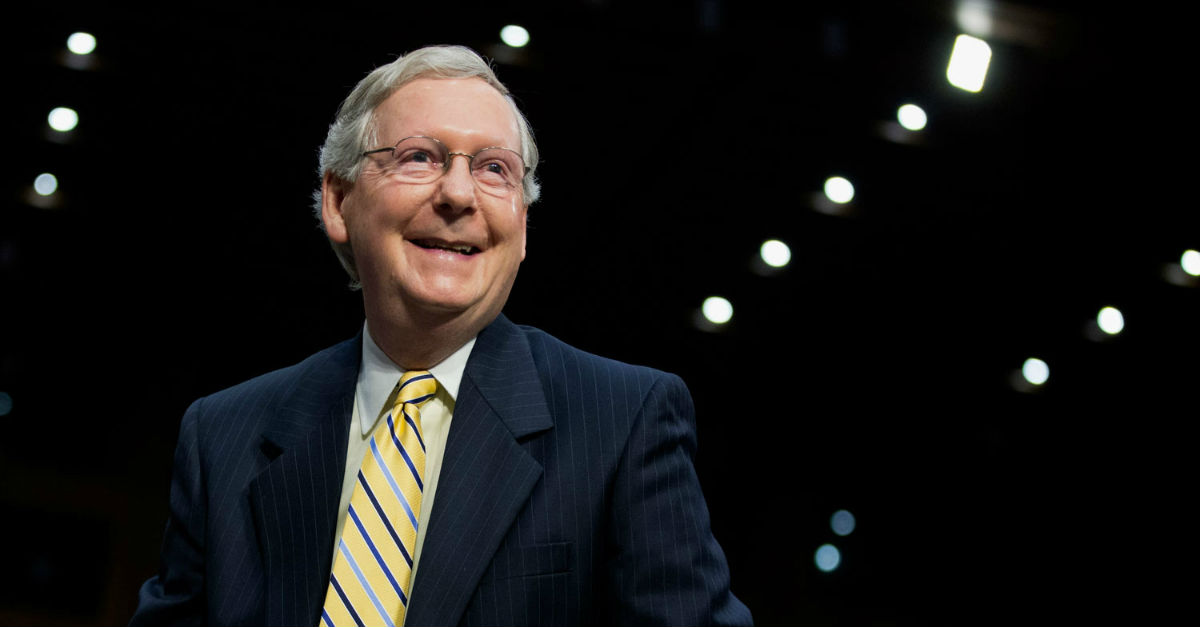September has arrived, and it brings with it an expanding menu of forecasts for the fall elections.
Videos by Rare
This week the Huffington Post launched HuffPost Pollster’s new election forecasting model. As they acknowledge in introducing it, it’s “slightly more optimistic about the Democrats’ chances than some other prominent news media forecasts,” placing the odds of a Republican Senate at 44% as of Wednesday evening.
By contrast, FiveThirtyEight, which this week switch from sporadic to daily updates on its forecast, has Republicans’ chances at 63.9%. The Upshot’s forecasting model at The New York Times has Republicans’ odds at 67%.
“The difference,” write the HuffPo analysts, “is that these models also incorporate other factors that have been historically predictive of election outcomes, such as candidate fundraising and measures of the national political environment, which are less favorable for the Democrats in 2014 than the current polling snapshot.”
What explains the divide between the fundamentals of the cycle, which show an environment favorable to Republicans, and the polls, which show a lot of close races, but relatively few where Republican challengers are building comfortable leads? There are three possibilities:
- The polls are about to break toward Republicans. The Huffpollsters float this theory:
The modest differences between the models implies that polling snapshots in some of the contested races may yet grow more favorable to the Republicans as the campaign progresses, either because some voters will gravitate toward GOP candidates as they grow more engaged in the election or because pollsters have not yet adequately accounted for the turnout advantage that Republicans usually enjoy in off-year elections.
It’s generally agreed that the fundamentals are more predictive early in an election cycle and the polls are more predictive later. If Republicans are capitalizing on the favorable environment, the forecasting models should converge over the next couple months. Unless…
- The polls are broken. Response rates keep shrinking. Fewer people have landlines. Cell phones are more expensive to poll (it’s generally only legal to call mobile phones with live operators, so automated messages are out), and many people don’t pick up calls from unfamiliar numbers anyway. Internet-based polls have shown some promise (they were surprisingly accurate last cycle), but they remain unproven. It may be possible to identify a meaningful sample of voters online, but there’s nothing like an industry standard yet.
For all of that, we haven’t seen a complete breakdown in polling accuracy. It’s a real possibility, but counting on polls to be systematically skewed is generally a sucker’s game. If GOP poll numbers don’t improve in the coming weeks, there is of course another possibility…
- Republicans really are underperforming. Some conservatives are starting to fret about the GOP’s lack of a policy agenda this cycle. As the editors of National Review put it, “Republicans continue to lack any strategy for winning the November elections beyond avoiding mistakes and hoping that President Obama’s unpopularity, especially in key states, delivers control of the Senate to them.”
NR’s editors acknowledge that this strategy might work, but argue that it won’t “maximize the Republican opportunity.” Ramesh Ponnuru spells it out, worrying that Republicans could “blow their opportunity, failing to win all the seats they could and failing to set themselves up to become a governing party in 2016.”
What Ponnuru is hinting at is that 2016 is likely to be a tough year for Republicans, who’ll be defending all of the seats won in the 2010 wave. If Republicans win the Senate by only a seat or two in 2014, it could be difficult to hold onto that majority two years later.
No matter which forecast model we choose, there’s a very good chance that the GOP will win the Senate this fall. And they might even run the table and build a majority durable enough to last into the next presidency. But if they fall short on either measure, expect the complaint about a lack of policy specifics to feature in future intraparty recriminations.



